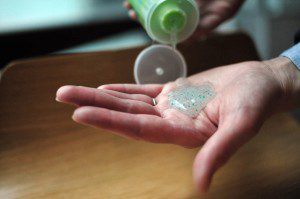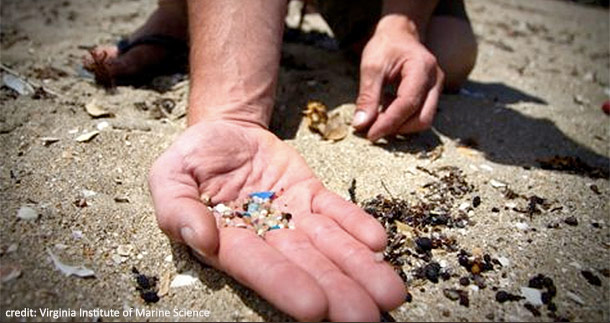Contributing Writer for Wake Up World
Found in the most unlikely of places, plastic microbeads are cropping up in a wide-range of personal products — from toothpaste to facial cleaners and body wash, as well as over the counter drugs. The tiny beads are usually made of non-biodegradable polyethylene or polypropylene — and a single product can contain upwards of 350,000 of these problematic particles.
Our sewage treatment facilities are not equipped to filter out microbeads, which ultimately end up in our waterways and oceans. Once there, they attract other toxic chemicals like persistent organic pollutants, which exhibit cancer causing properties.
[pro_ad_display_adzone id=”110028″]
When we ingest these plastic particles, we’re also opening the door to a host of health problems.
We may wonder why plastic would be added to our favorite personal care products in the first place. The reason is simple: synthetic beads are more cost effective — for the manufacturer, at least — than natural (and biodegradable) exfoliants like salt, sugar and apricot shells.
All the same, is it really necessary to be brushing our teeth, or washing our skin, with synthetic bits?
Cleaning the body, polluting the environment
According to the Watershed Council:
“Beginning in 2012, a research team that included scientists from the State University of New York (SUNY) at Fredonia and The 5 Gyres Institute began sampling the Great Lakes to better understand plastic pollution in our most treasured resource.
“The recent research to collect data on the prevalence of plastics in the lakes is showing alarming results. Lake Michigan had an average of 17,000 microbeads per square kilometer. The levels were much lower in Lake Huron and Lake Superior, but Lake Erie and Lake Ontario had much higher concentrations. Lake Ontario’s levels are highest, with counts of up to 1.1 million plastic particles per square kilometer.”
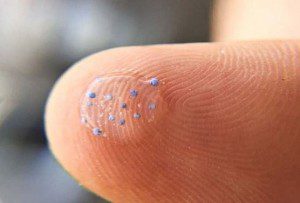 The report also highlights the fact that microbeads are about the same size as fish eggs and look like food to animals such as yellow perch, turtles and seagulls. The beads have already been found in the stomachs of Great Lakes fish species, who are then deprived of nutrients from real food and suffer from blocked digestive systems.
The report also highlights the fact that microbeads are about the same size as fish eggs and look like food to animals such as yellow perch, turtles and seagulls. The beads have already been found in the stomachs of Great Lakes fish species, who are then deprived of nutrients from real food and suffer from blocked digestive systems.
Over and above that, the plastic does not biodegrade and acts like a magnet for pollutants like DDT, PCB, flame retardants and a variety of other industrial chemicals, making the beads exceptionally toxic for the animals who ingest them. The same goes for humans who eat the contaminated seafood.
Polychlorinated biphenyls (PCBs) are especially worrisome since the toxins have been associated with liver disease, multiple types of cancers, low birth weight babies among other serious health-related issues.
To make matters worse, ThinkProgress reports that each year microbeads contribute to an estimated 38 tons of plastic pollution in California’s environment. The plastic particles are everywhere — even Arctic sea ice.
Dentists are also up in arms.
“They’ll [microbeads] trap bacteria in the gums which leads to gingivitis, and over time that infection moves from the gum into the bone that holds your teeth, and that becomes periodontal disease,” dentist Justin Phillip said, according to Phoenix ABC affiliate KNXV. “Periodontal disease is scary.”
The plastic substance is found in Crest 3D White and Crest ProHealth. In response to public pressure, Crest said in a statement that it will begin phasing out microbeads in its products, which will be completed by early 2016.
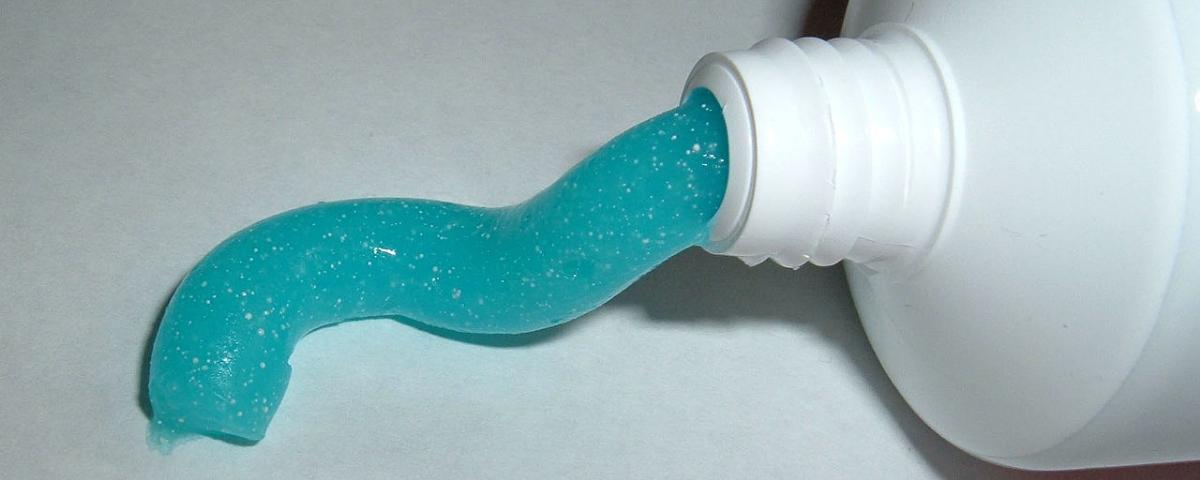
How to protect yourself and the environment
Know your products
Avoid products containing “polyethylene” or “polypropylene” microbeads on the ingredient list. You can also download the free app Beat the Microbead. Once the app is installed, you simply scan the product barcode with your smartphone. The results will indicate:
- Red: This product contains microbeads.
- Orange: This product still contains microbeads, but the manufacturer has indicated it will replace in a given time frame or adapt the product accordingly.
- Green: This product is free from plastic microbeads.
The app was developed by two Dutch NGOs — the Plastic Soup Foundation and the North Sea Foundation.
Seek natural options
Due to legislation and public outcry, many major brands (Johnson & Johnson, Body Shop, L’Oreal, Colgate-Palmolive, Proctor & Gamble, Unilever) are beginning to phase out the use of microbeads globally. However, it will take time and there are literally thousands of products that still contain plastic particles.
To be safe, always choose natural options which use biodegradable exfoliants (examples include oatmeal, walnut shells, jojoba wax, ground almonds, sea salt, sugar, ground apricot pits, cocoa beans and pumice). You can download the Good Scrub Guide to find which products are synthetic microbead-free in the UK and Australia (many of the brands listed are also available in the United States). Better yet, make your own personal care products. Sites like Mother Earth Living and DIY Natural offer plenty of inspiration.
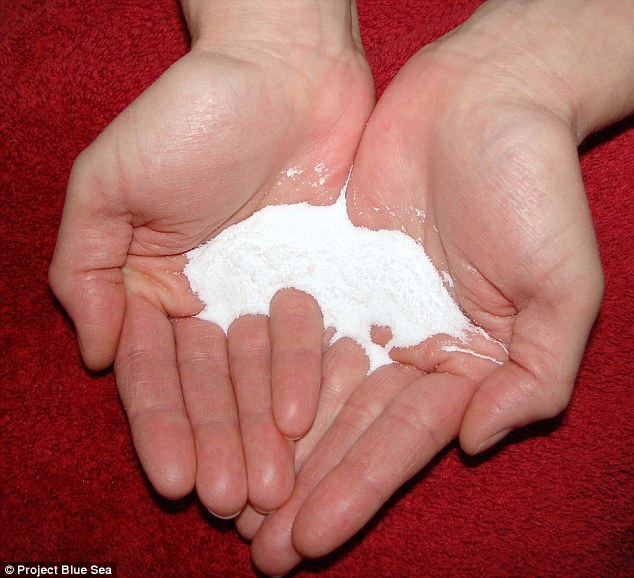
Tiny plastic microbeads are too small to be filtered out through sewage treatment, and end up in the ocean where they become a persistent pollutant, poisoning sea organisms and the wildlife that ingests them.
Support bans on microplastics
To date, Illinois is the first state in the U.S. to prohibit the manufacture of products containing synthetic exfoliants and over the counter drugs. The deadline for phasing out these products is 2019. California also passed stringent legislation last May. Other states looking at microbead bans include New York, Minnesota, Ohio, Michigan and Washington state.
Likewise, a federal ban is also in the works. Fred Upton (D-MI) helped craft the Microbead-Free Waters Act of 2015. Members of the House Energy and Commerce Committee’s Subcommittee on Health recently held the first legislative hearing for the act on May 1st, 2015.
Similar bans are also being considered in other countries, including Canada, Australia, New Zealand and the Netherlands.
In the meantime, you can show your support by signing the petition to Ban The Bead at Avaaz.org
Beat The Microbead — Plastic Soup Foundation & The North Sea Foundation
Article sources:
- http://www.today.com/health/microbeads-toothpaste-safe-brush-1D80157769
- http://www.dentalbuzz.com/2014/03/04/crest-imbeds-plastic-in-our-gums/
- http://www.baltimoresun.com/news/opinion/oped/bs-ed-pcb-bill-20150216-story.html
- http://www.washingtonpost.com/news/to-your-health/wp/2014/09/18/why-dentists-are-speaking-out-about-the-plastic-beads-in-your-toothpaste/
- http://spiritualityhealth.com/articles/dangers-microbeads
- http://thinkprogress.org/climate/2015/05/19/3659921/tiny-plastic-microbeads-getting-banned-in-numerous-states/
- http://www.watershedcouncil.org/learn/microbeads-in-the-great-lakes/
- http://www.beatthemicrobead.org/en/science
- http://www.smh.com.au/environment/campaign-to-rid-australian-waterways-of-microbeads-wins-backing-of-clarins-clearasil-and-ella-bach-20150227-13re2b
- http://www.cbc.ca/news/technology/plastic-microbead-dangers-studied-by-environment-canada-1.3008669
- http://www.scoop.co.nz/stories/SC1504/S00066/threat-to-new-zealand-waterways-prompts-microbead-ban.htm
- http://www.euractiv.com/sections/science-policymaking/dutch-rally-support-microplastic-ban-safeguard-their-mussels-310893
Previous articles by Carolanne:
- Is Roundup Driving The Autism Epidemic? Leading MIT Researcher Says YES
- Over 100 Scientific Studies Agree: Cannabis Annihilates Cancer
- Emotional Energetic Healing: The Future of Medicine is Here
- Why Every Parent Should Consider Unschooling
- The Greenhouse of the Future: Grow Your Own Food Year-Round With This Revolutionary System
- First U.S. City Produces More Electricity Than It Uses — With 100% Renewable Technology
- Dry Skin Brushing Can Strengthen Immunity, Spark Detoxification and Reverse Aging
- Autistic Boy with Higher IQ Than Einstein Discovers Gift After Removal from State-Run Therapy
- Enhance Spiritual, Mental and Physical Well-being with a Pineal Gland Detox
- DIY $2 Self-Watering Garden Bed – Grow Produce Easily, Even in the Toughest Conditions
- How Being Too Clean Can Lead to Cancer, Multiple Sclerosis, Celiac Disease and More
[pro_ad_display_adzone id=”110025″]
[pro_ad_display_adzone id=”110027″]

